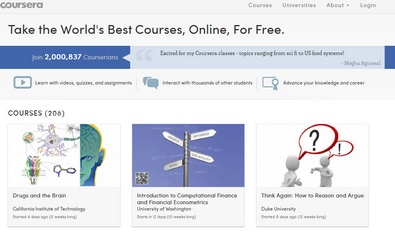Not so long ago education was considered to be a luxury, available to a wealthy few. Only in relatively recent times have governments made a determined effort to provide state run education for everyone. But the current economic climate has changed a lot of things, among which is a massive rise in the cost of providing and obtaining proper tuition in your field of choice.
But it looks as though there could be a silver lining in all of this turmoil, as the Internet spawns a new class of educational service, and one which could literally change the world completely.
MOOCs (massive open online courses) offer online education to anyone with an Internet connection, 24 hours a day, and completely for free. This concept of remote education is not new of course, it’s been around since the beginning of the Internet (and in fact the Australians were doing it via radio even earlier), but what makes things different now is the massive profusion of low cost connected computers (think of smartphones and tablets) and the ease and cheapness of going online.
Students in a MOOC do not need to register, pay fees, attend a physical location or take exams. Learning is done through peer group review, group collaboration and assignments and tests where agreed upon. Each student can learn at their own pace and attend when they have the time. Before you mock this loose limbed approach consider that last year over 160,000 people registered for an online course in Artificial Intelligence from Udacity, and the Spanish MOOC Wedubox boasted of attracting over 1000 teachers to the service during their beta trials a few months. Things are starting to pop.
Coursera is one of the major players in the field, and offers a wide array of courses, ranging from medicine to the humanities. Their aim is to give each professor the opportunity to reach tens of thousands of students from all over the world. This is a global revolution, in terms of what it could mean for those from the less developed nations. The Khan Academy, EDx and others are also jumping on the bandwagon, so we can expect to see a huge surge in interest in this area over the coming months and years.
The idea of teaching the world remotely may seem ridiculous and unrealistic to some, but the consequences of distributing knowledge to the furthest reaches of the planet could have profound effects on us all. Somewhere out there in the furthest reaches of the planet are many more Einsteins, Platos and Plancks, and only by giving them every opportunity to flower will we sow the benefits of their latent genius.





